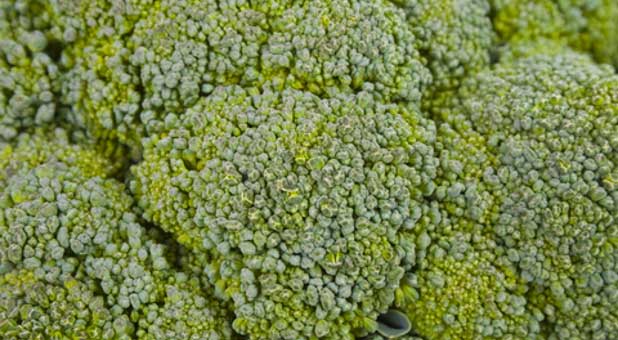How to Increase Testosterone and Lower Estrogen Levels
Demographic studies have determined only 40 percent of the men in the United States have a health care provider they visit on an annual basis. I have also read statistics that a large percentage of men over the age of 40 years are living quiet, passive, desperate lives due to the fact their testosterone (male libido hormone) levels are subpar.
The continuous onslaught by the pharmaceutical companies with their subliminal advertising on TV, the Internet and magazines with seductive scenes would have one believe the men in our society today do not have the ability to arrive at or sustain male function all because of low testosterone (Low T).
I am concerned for the majority of all men today who are puzzled and do not know which way to proceed with their hormonal health. There is so much confusion, and quite honestly, men read men’s health magazines to decide how to manage their muscle tone and strength, heart health and libido.
Testosterone levels, from what I perceive reading and practicing clinically, are definitely lower now than they ever have been. (You did not see full-page ED ads in the 1970s or 1980s.) I consult with men and their spouses regularly in the office, discussing low testosterone issues, and I am wondering if we’re in the beginning of an epidemic.
Testosterone levels and numbers can be measured in a variety of ways. The two common tests to assess testosterone levels is via serum and or saliva. I clinically prefer to use the salivary testosterone male hormone panel to help me determine the testosterone number that is in a free state. I have read about serum testosterone levels, and it may not give the accurate level of testosterone in comparison to the free level of testosterone found in saliva because the testosterone level is combined with protein.
I have compared testosterone levels in relation to PSA levels (a scan for potential prostate issues) and have helped lower the PSA levels as testosterone levels elevate. The number for testosterone varies for one’s age.
Men tend to have lower saliva testosterone levels in their 40s; the number you would like to focus on and increase to be a saliva testosterone level (depending on your lab) is at or above 100. If you decide to have a salivary male hormone level completed and your number is below 100, there is an action plan that you can pursue. I would encourage you to read or listen to Dr. Bob’s Men’s Health: The Basics.
I also recognize health care providers may be uninformed about the actual role food plays in health and may have missed the fact that the meals we eat may in fact have constituents in them with ingredients that either create or promote estrogen development in the body. I know from looking at labels and investigating the role of estrogen in food that we have a major alarm.
Soy tends to be perceived as a health food, but in fact may be one of the principle reasons we have estrogen dominance, which tends to lower testosterone levels. I do not promote soy for anyone, and men, from my opinion, should never eat soy. The male hormonal system does not have the ability to process the massive amount of estrogen found in the environment. Estrogen can be found in conventional animal products (not organic), fertilizers and canned food; it has even been determined to be in the water some drink, depending on their municipality.
I would like to pass on some takeaways for you to maintain testosterone and control estrogen. Broccoli is one food that all men should add to their daily routines. Broccoli assists your body in removing the unwanted and unnecessary estrogen found nearly everywhere. I also know your liver would appreciate at least one-half of a red apple per day, a minimum of one-third cup of beet fiber and one medium carrot.
Dr. Bob’s ABCs promote optimal liver function which, in turn, helps clear estrogen. There are other foods that help your body control estrogen; they would include blueberries, celery, sour cherries, cranberries, red grapes, purple grape juice, horseradish, kale, tomatoes and mushrooms.
Be aware if you are using a testosterone patch or product to build muscle, it may unknowingly be converted to estrogen because of an increase in an enzyme called aromatase. Foods such as tofu, soybeans, soy protein isolate, sunflower oil, soybean oil, safflower oil, corn oil and alcohol boost aromatase and should be avoided if you are using any type of testosterone product.
One final thought: Testosterone is primarily created in the testes. Your adrenal glands are an important backup testosterone producer. Sugar and stress sabotage adrenal function, and I suggest the need to take care of them. Eat protein and green vegetables and avoid refined grains and sweets to get the most production from your adrenal glands.
Dr. Robert DeMaria is a catalyst for health and well-being. As owner of the Drugless Doctor brands, Dr. Bob’s techniques have restored optimal health to thousands of patients without the need for prescription medication. His research and daily experiences can be seen throughout his seven books, including the best-seller Dr. Bob’s Drugless Guide to Balancing Female Hormones. Dr. Bob has consulted for FedEx, VitaMix and other national brands and has appeared on multiple media portals, including ABC Family, TBN, Fox 8 Cleveland, and WFAN NYC.
An avid fan of social media, connect with Dr. Bob on Twitter @DruglessDoctor, and see what he’s eating on Facebook at Dr. Bob The Drugless Doctor.














































